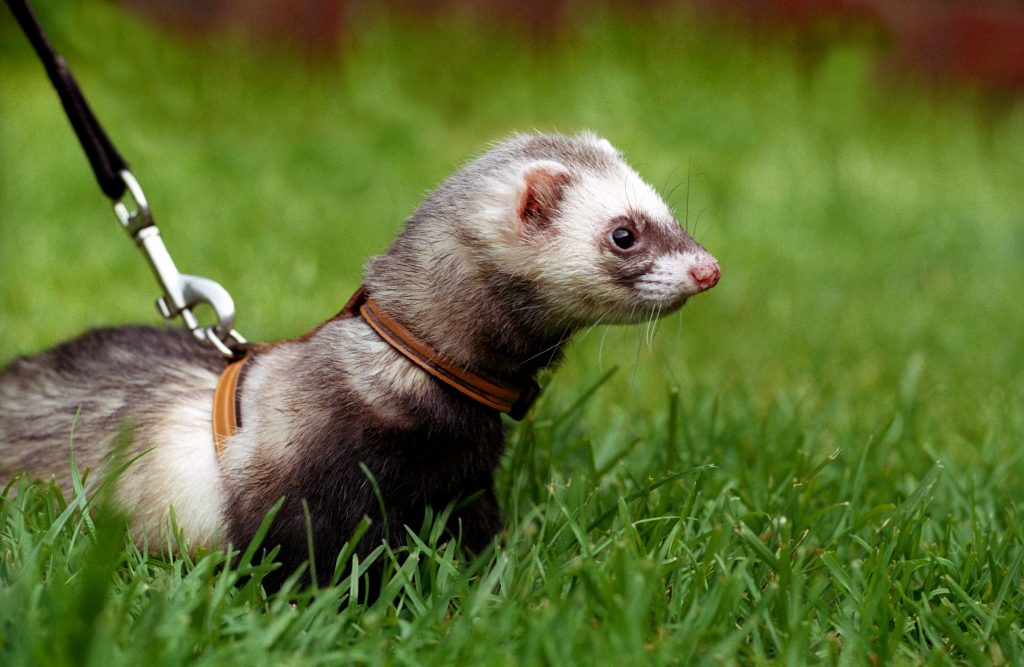
How to Care for Those Tiny Pets

Mice, rats, hamsters, guinea pigs, and ferrets are social animals that can be highly interactive with their owners. They love to explore and interact with their environment, and they’re often happiest when they have another companion of their kind to keep them company.
These pets may share the trait of being tiny in stature, but their diet and care needs differ. The team at Arlington Animal Hospital has put together these tips to help you properly care for your tiny pet.
Pet Mice
Mice can eat almost anything that humans eat, including fruits, vegetables, nuts, and sunflower and millet seeds. Mice like cheese, pasta, and bread, too. If you want to give your pet mice treats, make sure the sugar or salt content isn’t too high. Commercially-produced foods are available online or in pet stores.
For a mouse habitat, look for a cage about eighteen inches long, twelve inches wide, and twelve inches high. The floor area should be increased by half a square foot for each additional mouse. A wire cage’s bars should not be more than 1/4 inch apart—mice can squeeze through very small spaces.
You should also provide your mouse with chewable material, such as wood blocks or cardboard tubes, to nibble on during the day.
Rats
Rats are omnivorous, which means they eat both plants and meat. They enjoy fresh fruits and vegetables as treats, along with seeds, nuts, and grains such as oats. Several commercially prepared foods are available to meet the nutritional requirements of rats.
Rats like to explore their environment, so make sure they have a spacious cage to live in. A good rule of thumb is about one square foot per rat.
Rats should have a wheel in their cage so they can exercise while they’re awake (they sleep most of the day).
Hamsters
Hamsters are omnivores, so they can eat a variety of foods. However, they should not be fed a diet too high in protein.
The ideal diet for hamsters consists of a mix of flaked and seed-based foods, along with fresh fruits and vegetables. Commercially prepared hamster food can be purchased at pet stores or online.
Hamsters need plenty of floor space in their cages—at least two square feet per hamster—and toys and other enrichment items like wheels and tunnels that they can explore and use for exercise.
Hamsters tend to be nocturnal (active at night) so if you want to engage with them during the day, get a light that simulates day/night cycles in their tank or cage.
Guinea Pigs
Guinea pigs are herbivores and require a diet rich in hay and other fiber.
Most commercial pet foods aren’t suitable for guinea pigs due to their high carbohydrate content and lack of fiber. However, some manufacturers produce specialized pellets that can be purchased from pet stores or online retailers.
If you don’t feed your guinea pig commercial pet food, give them a variety of fresh fruits and vegetables, including dark leafy greens.
Guinea pigs need plenty of room in their cages—at least two square feet per guinea pig is recommended—and bedding material such as timothy hay or alfalfa hay (available at pet supply stores).
Ferrets
Ferrets are carnivores, and they require a diet high in protein. The best food for ferrets is high-quality dry ferret food. Your ferret can get sick from eating fruits or vegetables. Signs of illness may include diarrhea, constipation, nausea, and vomiting.
Ferrets do best when given plenty of space to move around in their cages. A large wire cage with a solid floor is ideal. Equip your ferret’s cage with a litter box. A shallow pan works well, or you can buy ferret litter boxes from many pet stores.
A ferret cage should have plenty of toys—some made especially for ferrets—as well as tunnels and climbing structures that encourage safe exercise indoors.
Arlington Animal Hospital Can Help You Care for Your Tiny Pet
Tiny pets are a lot of fun and can be a great addition to your family. Feed them the proper diet and give them access to plenty of water. Provide a habitat suited to their needs, and ensure they have toys and interaction to keep them engaged and happy.
Have a question about your tiny pet’s health? Request an appointment online, and please let us know how we can help.
Contact Us!
2301 Columbia Pike #G-1, Arlington, VA 22204
Phone: (703) 920-5300
Fax: (703) 685-8860
Email: info@myarlingtonvet.com
Office Hours
-
Monday
8 a.m. – 8 p.m.
-
Tuesday
8 a.m. – 8 p.m.
-
Wednesday
8 a.m. – 6 p.m.
-
Thursday
8 a.m. – 6 p.m.
-
Friday
8 a.m. – 6 p.m.
-
Saturday
8 a.m. – 2 p.m.
-
Sunday
CLOSED
- Doctors’ hours are by appointment only.



